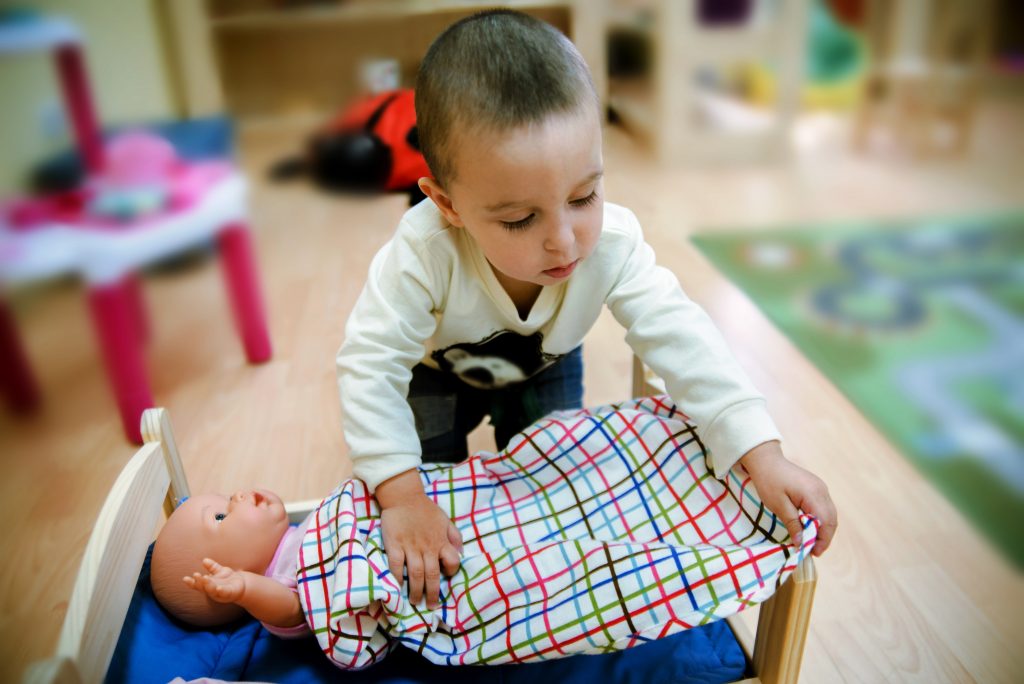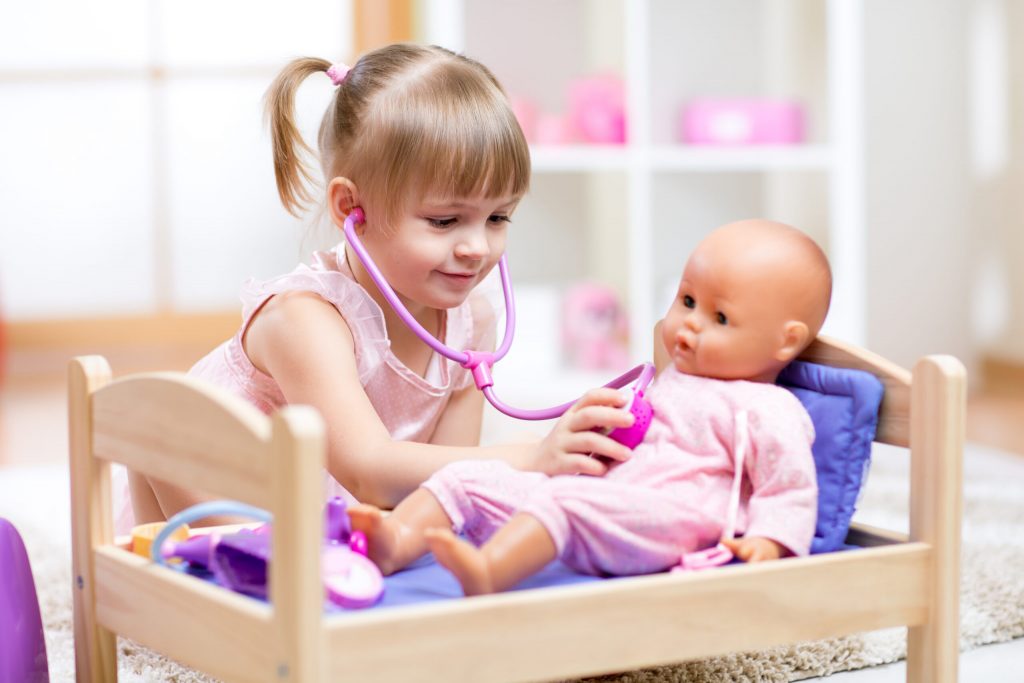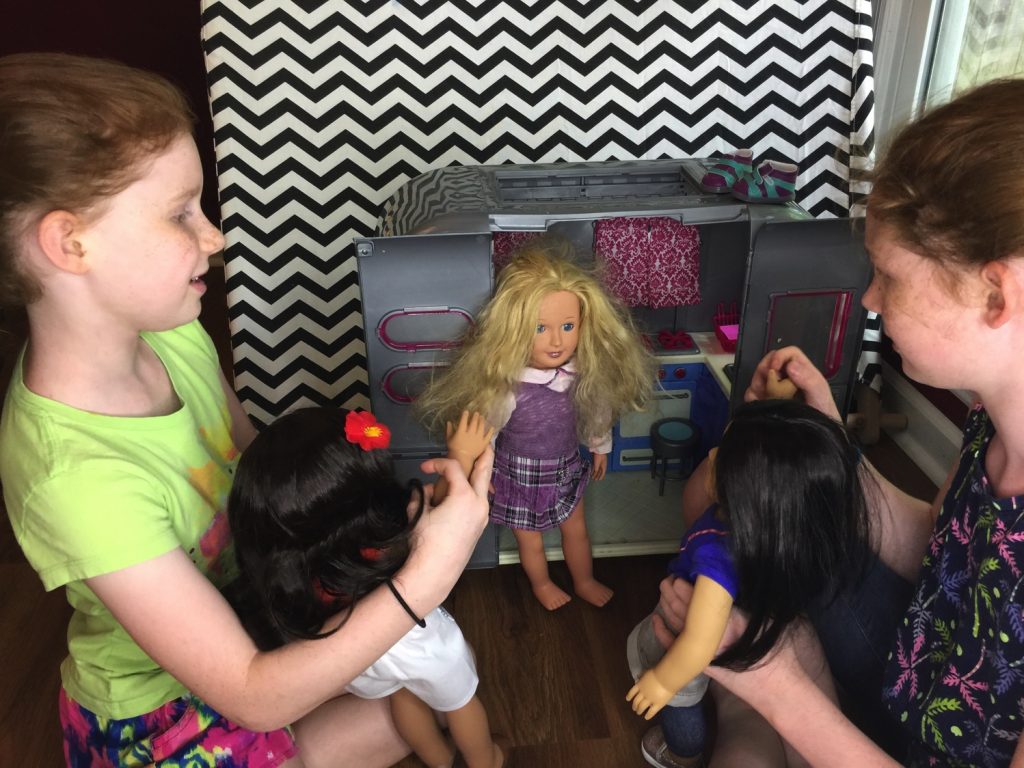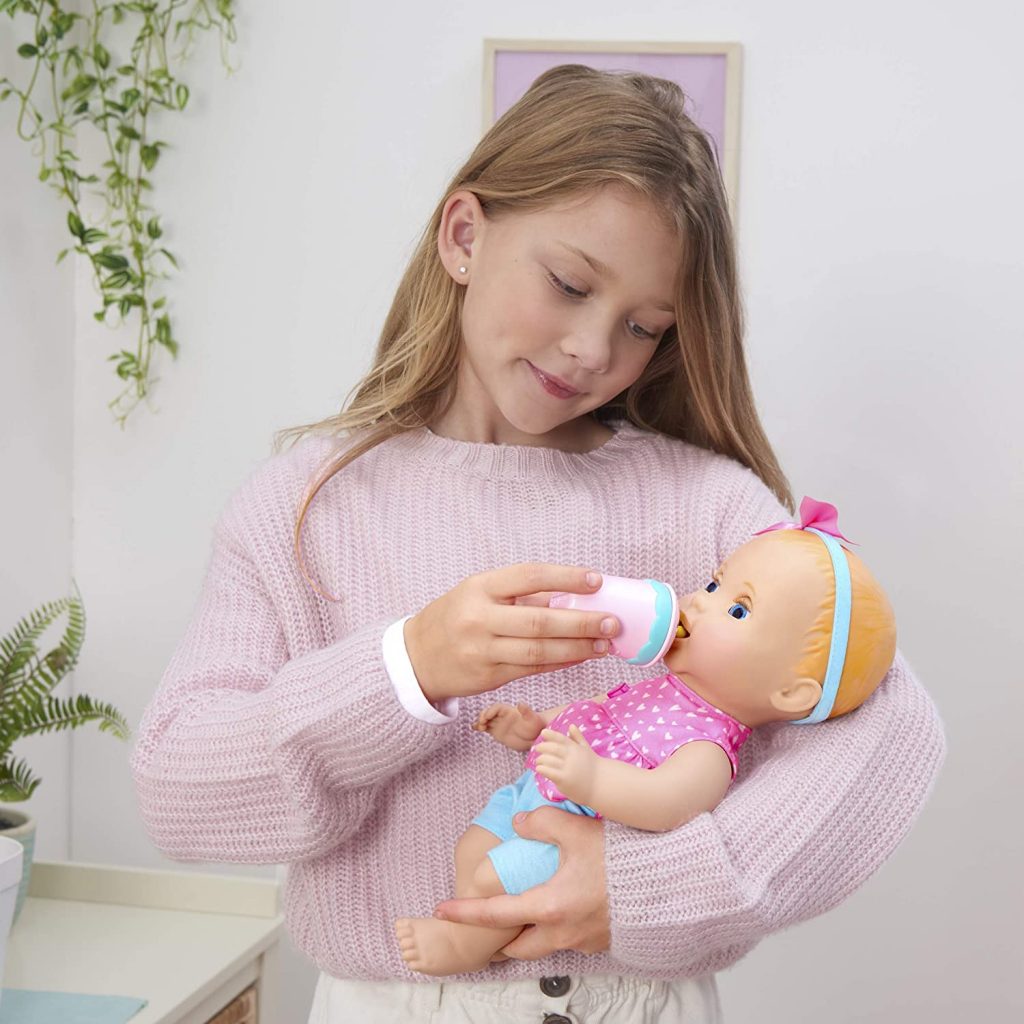There are many reasons why dolls are an absolute favourite to play with among children of all ages. In a way, they are a representation of kids themselves and allow them to gain a greater understanding of their body and the world around them. Little ones start exploring the world around them from a very early age, start adopting roles of characters they have observed and one way of them doing this is through doll play.

For this reason, there is an endless number of brands that design quality dolls for toddlers and older children. So, you can choose to teach your kid about family and diversity with Miniland dolls, Bonikka dolls, Adora dolls, HABA dolls, etc. That being said, let’s see why is playing with dolls is so important in more detail.
Develop Care-Taking Skills
From a very early age, children begin to understand and make sense of their world, so buying quality and adequate dolls for toddlers for your little one will allow them to model what they have seen or reenact what’s been done to them or a sibling. With the help of dolls, your kids can also learn responsibility. They will learn how to take care of a doll by playing with it, swaddling and rocking it. In a way, they can gain another perspective – being a mom or dad.

Develop Language Skills
Dolls for baby are toys that can really help open up and expand children’s pretend play. Kids can learn a lot of words through play and dolls can help them practice their speech and language skills. For instance, dolls are fantastic for teaching various body parts such as the mouth, nose, eyes, ears, hands, fingers, tummy, feet, knees, etc. Of course, you can teach these without a doll, but providing another opportunity to practice labelling, dolls help generalize the vocabulary. In other words, they can help teach children that “eyes” not only refer to the thing on their face but to all faces.
Furthermore, by using the clothes of the doll you can teach the names of clothing items, like shirts, dresses, pants shoes, socks, etc. With the help of these toys, you can also teach some basic concept like colours, sizes (using different sized dolls), prepositions (baby under the blanket, baby in the bed, etc.), as well as some verbs and feelings like eating, drinking, sleeping, being thirsty, hungry, and many more.
Develop Cognitive, Fine Motor & Self-Help Skills
In most cases, children find it easier to practice these skills on someone or something else before they apply them to themselves. For example, 2-3 years olds begin acting as if their doll can see and interact with them. They often link several actions with the doll in sequence, including feeding the doll, bathing it, and then putting it to bed. This sort of pretend play is an extremely important part of their cognitive development.
In addition, kids also benefit from removing and putting on clothes on a doll before doing so for themselves. Taking clothes off is usually mastered first. On the other hand, putting clothes on can be tough, but it is easier when first practised on a doll. Hence, children can practice placing a hat on their head, zipping with some assistance, pulling their pants up, putting on a shirt, putting their shoes on, buttoning large buttons, and similar.

Playing with a doll also gives children the opportunity to practice appropriately holding and using feeding items such as cups, bowls, forks, spoons, bottles, etc. Also, they can practice sequencing skills by giving their doll a bath. For instance, first, fill up the tub, then put on a shampoo, after that rinse the hair, etc. This way, they also practice hygiene skills. In a similar way, they can learn to brush their hair, brush their teeth, and to wash their hands.
Develop Social-Emotional Skills
When carrying, feeding, holding, and rocking the baby doll, children are also practising being loving to others. In fact, they may be modelling how they see adults in their world caring for children. They enjoy taking on the adult role in order for them to feel a sense of control and power because they have very little control over their world.

Dolls are a perfect way for young children to prepare for the birth of a sibling. Parents can model ways to appropriately care for an infant. Plus, once the baby arrives, the big-sibling can care for their own baby doll right alongside mom and dad. This is also beneficial for the kid to have their own activity and still feel connected to the parents since he/she’s not going to get as much attention as he/she used to (which is totally normal).
Develop Empathy & Compassion
By playing with dolls, children learn how to process emotions such as empathy and compassion. Besides teaching them responsibility, it also teaches them to empathize with those around them and allows them to grow up into caring people. This is an important indicator of children’s future success. In fact, empathy allows children to understand other points of views, helping them to be better leaders, collaborators, and parents. It promotes successful relationships and conflict resolution skills.
All the above-mentioned benefits indicate that every child should have their own dolls to play with. This also makes dolls the perfect choice for a gift, so whenever you’re trying to think of lovely birthday gift ideas for little girls, give dolls a priority.